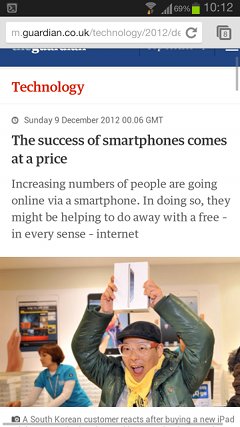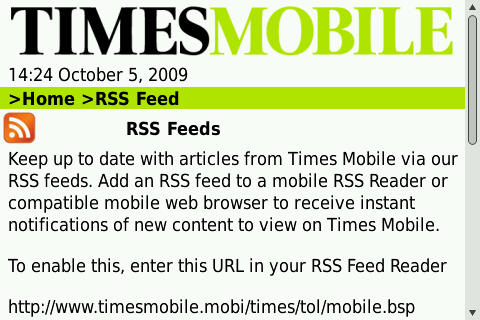
The Guardian launched its online adventures back in 1999. At some point, they started using the name "Guardian Unlimited". Hey, the dot com boom made us all do crazy things! As part of that branding, they proudly used the domain GU.com Over time, the branding faded and GU.com became a URL shortening service. Tiny URls like gu.com/abc could be printed in papers, sent via SMS, or posted on…
Continue reading →

Earlier this year, I attended a lecture given by Alan Rusbridger - the outgoing editor of The Guardian - entitled "The World After Snowden." Held at Oxford University, and attended by journalists, technologists, and former spies - it was an exceptionally interesting talk and provoked a lively debate over dinner. In light of the publication of the disastrous Investigatory Powers Bill, I've…
Continue reading →

I had dinner with the outgoing editor of The Guardian the other night. Clever chap, sure he'll go far in life. The Guardian is very hot on security. Many of their writers have PGP keys which they publicly advertise. In theory, that's great (complaints about PGP notwithstanding) - but the reality shows just how tricky it is to act in a security conscious manner. Have a look at Alan's Twitter…
Continue reading →

I usually admire The Guardian's technology coverage (not least because they occasionally feature me!) but their latest article - The success of smartphones comes at a price - is ridiculously bad. It posits three arguments. More people are using smartphones to access the Internet than ever before. Smartphones are heavily locked down. Mobile Operators are "corporate control-freaks". …
Continue reading →

Three failures and one giant lost opportunity Failure 1 - Targeting This version of the Tesco shopping app is only available on Nokia phones. Nothing wrong with that - Nokia are still the biggest phone seller on the planet. So why allow the advert to be shown to Android users? It will annoy users, reduce your CPM, and make users less likely to click on adverts in future. Failure 2 - Sizing …
Continue reading →

In this Mobile Badvertising series, I regularly pick on the Guardian. I don't have anything against them - they're my favourite mobile news resource. It's such a shame that the advertising they have on the site is atrocious. Samsung Galaxy S The Galaxy S is Samsung's latest Android handset. There are so many Android phones out there that you need a really great advertising campaign (or a re…
Continue reading →

Once again my wrath is targeted at The Guardian, Barclays and Apple. Three massive companies - each one of whom could have stopped this advertising disaster. Mistake #1 Take a look at this rather charming advert on the Guardian's mobile site. The more astute among you will recognise the problem. I'm being advertised an iPhone game when I'm browsing the site using an Android phone. This is…
Continue reading →

When I was a student, I had a brilliant idea. Why not have a stand at every train station where you could sync your Palm Pilot with the latest news? Insert a pound in the slot, press the button for The Times, aim your handheld's IrDA at the blinking light and ZAP! All the latest news for you to read on your train journey. It's just as well that my idea never got out of the paper prototyping …
Continue reading →

One of the things I love about Private Eye is the columns I don't read. Corners of the magazine dedicated to the gossip of the classical music world, the perils of modern architecture, positively incomprehensible reports about big business buying into football. I care for none of these subjects, but I'm immensely relieved that they are reported on somewhere. The Guardian's Saturday edition s…
Continue reading →

I read most of my news through my mobile - if your website isn't mobile friendly, I won't be bothered to read it. I've greatly enjoyed the BBC's Mobile News service and Guardian Mobile - but now there's a new player - The Times has a mobile site. This is a quick review of what I like and what I dislike about The Times' mobile venture. Discovery The first I knew of the site was this advert ne…
Continue reading →

Recently I was featured in two prominent online newspapers. The Times published a short story I wrote for The Times Cheltenham Twitter Competition. Extract from The Times The Guardian wrote about my experiences with energy monitors. Extract from The Guardian What struck me was the very different ways that these "Old Media" approached the "New Media" of the web. I'll state my biases up front. …
Continue reading →










